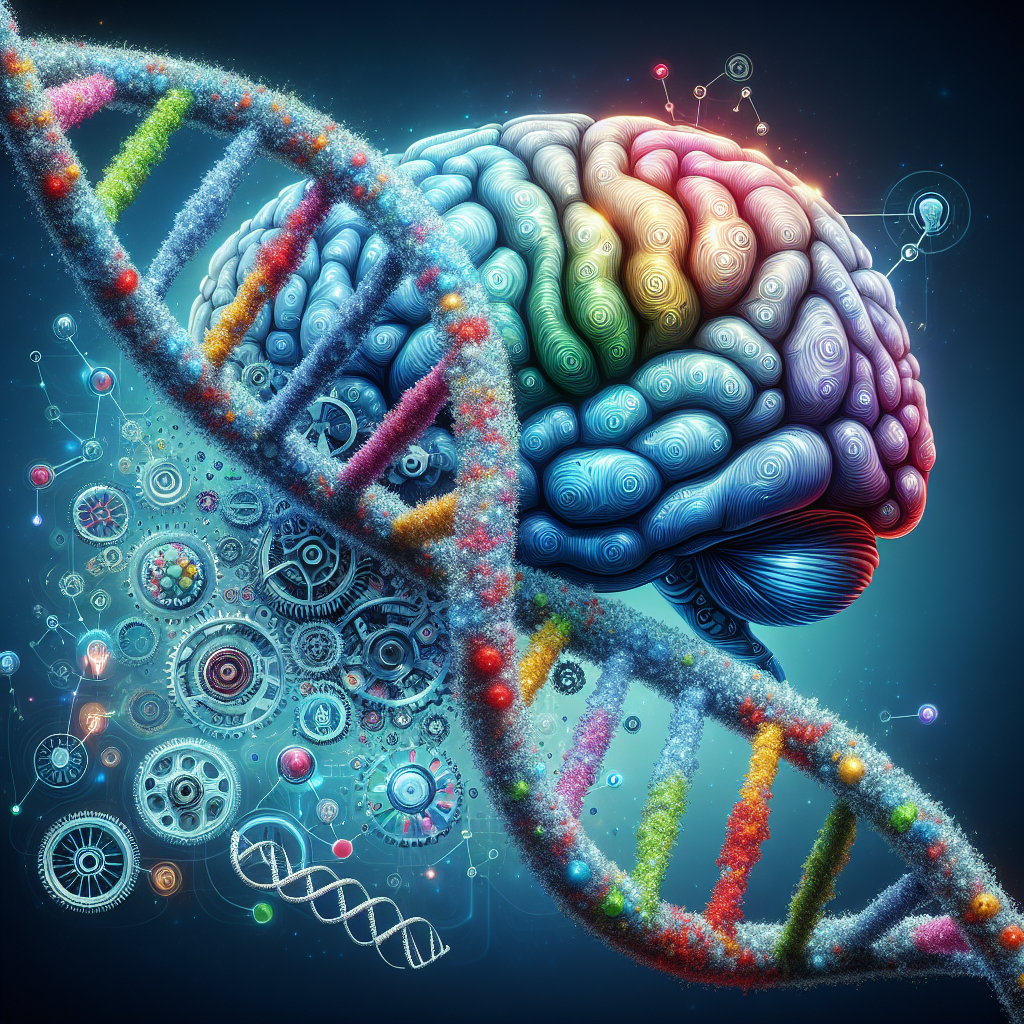
Genetics and Mental Illness: What Your Family History Reveals – The Essential Guide
Introduction
Every family has stories that weave through generations, tales often rich with triumphs, struggles, and sometimes, deeply personal battles with mental health. In recent years, the dialogue surrounding genetics and mental illness has become increasingly prominent, drawing connections between our family histories and mental health outcomes. Understanding these connections isn’t just an academic exercise; it can be the key to unlocking better mental health for future generations. In this article, we delve deep into Genetics and Mental Illness: What Your Family History Reveals, exploring the intricate tapestry of genetic predisposition, environmental influences, and the potential for prevention and treatment.
Understanding Mental Illness Through a Genetic Lens
The Biological Basis of Mental Illness
Mental illnesses, including depression, anxiety, bipolar disorder, and schizophrenia, are complex conditions influenced by multiple factors. Genetics plays a significant role, with numerous studies indicating heritability rates ranging from 30% to 80%, depending on the condition. While this might sound daunting, it also highlights the valuable insights that can be gleaned from understanding family patterns.
| Mental Disorder | Heritability Percent |
|---|---|
| Schizophrenia | 80% |
| Bipolar Disorder | 60% |
| Major Depressive Disorder | 40% |
| Anxiety Disorders | 30% – 50% |
This table summarizes the heritability associated with various mental illnesses, representing how family history can offer clues to risks.
Case Study: The Johnson Family
Consider the Johnson family, where both parents experienced severe depression. Their daughter, Emily, became aware of her family’s struggles when she began facing similar challenges at age 19. Genetic testing suggested a predisposition to mood disorders. This revelation allowed the family to seek early interventions, which significantly improved their mental health outcomes.
Analysis
Emily’s journey highlights the importance of understanding familial patterns as a proactive measure. By recognizing the hereditary nature of her mental health struggles, Emily and her family could address these challenges head-on.
The Role of Environmental Factors
Nature vs. Nurture: Finding the Balance
While genetics play a crucial role, it’s essential to consider environmental factors as key players in mental health. Stressful life events, socioeconomic status, education, and access to healthcare can all influence mental well-being. The interplay between genetic predisposition and life experiences shapes an individual’s mental health landscape.
Case Study: The Ramirez Family
The Ramirez family provides another compelling example. Despite a history of anxiety disorders running in their family, Maria, one of the cousins, managed to thrive in a supportive environment that prioritized mental health education and emotional support. She became a mental health advocate, countering her genetic predisposition with resilience and community resources.
Analysis
Maria’s experience illustrates that while genetics may predispose one to mental illness, supportive environments and education can significantly alter outcomes. This dynamic interplay speaks to the heart of Genetics and Mental Illness: What Your Family History Reveals—it’s not all determined by your genes.
Genetic Testing and Mental Health
The Benefits of Genetic Insights
As our understanding of molecular genetics deepens, genetic testing for mental health conditions is becoming more accessible. These tests can identify specific markers linked to various mental disorders, potentially guiding treatment options or lifestyle changes.
Case Study: The Chen Family
In the Chen family, the patriarch underwent genetic testing after a series of mood episodes. The results indicated a vulnerability to bipolar disorder. This information empowered him and his children to take preventive measures, including therapy and lifestyle adjustments. Thus, by understanding their genetic risks, the Chengs positioned themselves for better mental health outcomes.
Analysis
The Chen family’s proactive approach highlights the potential of genetic insights in mitigating mental health risks. Genetic testing, when integrated into a broader health strategy, can serve as a powerful tool for individuals and families alike.
Building Resilience Through Family History
The Importance of Awareness and Communication
Awareness of one’s family history of mental illness can foster resilience and understanding. Encouraging open dialogue about mental health, shared experiences, and wellness strategies can empower family members, potentially breaking the cycle of stigma and silence that often surrounds mental illnesses.
Case Study: The Patel Family
The Patel family’s approach contrasts sharply with previous examples due to their focus on communication. By prioritizing mental health discussions during family gatherings, they created an environment of acceptance. When Rina faced her first anxiety attack, she reached out to her relatives for support rather than retreating into isolation.
Analysis
The Patel family’s proactive communication shows how family dynamics can significantly impact mental health. By fostering a culture of openness, they effectively combat the stigma and isolation that often accompanies mental illness.
The Genetic-Ecological Model of Mental Health
An Integrated Approach
The genetic-ecological model suggests that both genetic predispositions and environmental factors coalesce to influence mental health outcomes. This comprehensive understanding allows for a more nuanced view of each individual’s mental health trajectory.
| Factor | Impact on Mental Health |
|---|---|
| Genetic Predisposition | Increases risk of developing disorders |
| Environmental Stressors | May trigger or worsen existing conditions |
| Family Communication | Can reduce stigma and promote support |
Conclusion
In conclusion, the exploration of Genetics and Mental Illness: What Your Family History Reveals isn’t merely an academic pursuit. Understanding genetic predispositions, coupled with an awareness of environmental influences, can significantly enhance resilience, knowledge, and proactive management of mental health. Families can derive strength from their history, utilizing it as a roadmap for better mental health outcomes in the future.
Actionable Insights
- Engage in Family Discussions: Regularly talk about mental health history to promote understanding and support.
- Consider Genetic Testing: If there’s a significant history of mental illness in your family, discussing genetic testing with a healthcare professional might be beneficial.
- Build Resilience: Create supportive networks within families to confront mental health challenges together.
FAQ Section
1. What is the connection between genetics and mental illness?
Genetics can increase the likelihood of certain mental illnesses based on family history. However, it is not the sole determining factor; environmental influences also play a significant role.
2. How can understanding my family history help my mental health?
Recognizing patterns in your family’s mental health can aid in early intervention, proactive management, and reduce stigma around mental health discussions.
3. Are genetic tests for mental health accurate?
While genetic tests can provide valuable insights regarding predispositions, they do not definitively predict mental illnesses. They should be seen as part of a broader health strategy.
4. How do environmental factors influence mental illness?
Environmental factors such as stress, trauma, socio-economic status, and support systems can all exacerbate or mitigate genetic predispositions to mental illness.
5. What steps can I take if I have a family history of mental illness?
Engage with mental health professionals, maintain open family discussions, seek therapy, and consider preventive measures based on familial patterns.
In the end, Genetics and Mental Illness: What Your Family History Reveals serves as a reminder of how intertwined our lives are with those who came before us. Understanding our genetics can empower us to be better prepared, more compassionate, and proactive about mental health—both for ourselves and our families.

















As I website possessor I believe the content material here is rattling magnificent , appreciate it for your hard work. You should keep it up forever! Best of luck.
I simply wanted to appreciate you again. I’m not certain what I would have accomplished in the absence of the creative ideas shared by you directly on my situation. It was actually a very difficult dilemma for me personally, nevertheless taking note of a well-written tactic you processed the issue forced me to leap over joy. Now i’m thankful for your help and pray you realize what a great job you are doing educating many people thru your blog. Most probably you’ve never got to know any of us.
You actually make it seem really easy along with your presentation but I to find this topic to be actually something which I think I’d by no means understand. It seems too complex and extremely extensive for me. I am taking a look forward in your subsequent publish, I will try to get the grasp of it!